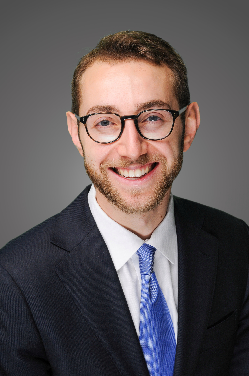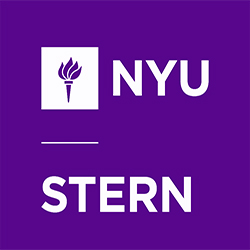 Michael Graf is a rising MBA2. Prior to Stern, he worked at J.P. Morgan Chase as a Reputation Risk Associate. This fall, he will be serve as the Co-President of OutClass, an Orientation Leader, a Leadership Fellow, and a Graduate Ambassador. Michael is working towards specializations in Strategy and Leadership & Change Management, and enjoys crossword puzzles, snowboarding, and reading historical fiction.
Michael Graf is a rising MBA2. Prior to Stern, he worked at J.P. Morgan Chase as a Reputation Risk Associate. This fall, he will be serve as the Co-President of OutClass, an Orientation Leader, a Leadership Fellow, and a Graduate Ambassador. Michael is working towards specializations in Strategy and Leadership & Change Management, and enjoys crossword puzzles, snowboarding, and reading historical fiction.
NYU Stern’s “Summer Internship Series” sheds lights into Sternies’ internships. Posts are written by rising MBA2s who are currently working at their summer internship.
Today is my last day as an Integrity Program Manager at Facebook. While you might expect that I would be focused only on off-boarding and saying goodbyes, I am actually spending my last few hours in this role working closely with a data scientist to implement my summer project into our team’s product review process.
My three months at Facebook have been rewarding because of the responsibilities my manager and team have entrusted me with. I was tasked with defining what Integrity ‘success’ looks like for product launches: essentially, asking how Facebook can measure the likelihood that a new product will allow for problematic content like spam, fake accounts, or abuse. More importantly, I was asked to define the effectiveness of our Integrity teams at reducing or mitigating the prevalence and effect of bad content.
I was initially overwhelmed by the ambiguity of my project and the challenge of tackling something so huge while navigating a new industry and company. Facebook defines success as having impact, and without a background in tech, I wondered how I could present and execute innovative solutions in a few short weeks. I spent my first week furiously googling engineering and coding jargon to simply understand my coworkers. I also questioned my ability to design a solution that would be applicable to the variety of spaces that Facebook works in. How could I create a process that worked for Groups, Dating, Fundraisers, and Gaming? Facebook is a vast platform and risk presents itself in so many different ways.
While these dynamics were obstacles, I came to view them more as opportunities. The wide scope of my project gave me a foot in the door with integrity teams across Facebook. I met with and learned the pain points of teams tasked with protecting the user’s experience with ads, News Feed, and Stories, among many others. I turned these diverse relationships into a working group to receive weekly feedback on my idea for a comprehensive risk assessment for teams across the company. Additionally, I leveraged my background in risk management to recommend additional use cases for the risk assessment, including identifying integrity gaps, surfacing high risk product launches, and tracking risk reduction. This framing helped my project land with leadership and connected my work to our team level efficiency goal for the year.
I also drew from my coursework at Stern to drive home my initiative and the quality of my work product. I recall hearing Professor Pettit’s voice in my head during a team-wide meeting my first week, “Don’t wait to lead,” as I built up the confidence to share my opinion on the value of risk quantification. I knew from his class, Leadership in Organizations, that leadership can be achieved at any level. By highlighting the value of risk quantification in comparison to the team’s status quo (even in my first week!), I built credibility and inspired my teammates to believe in the value of my project. I am grateful to Stern for equipping me with a toolkit to approach a challenging project in a new industry with confidence.
With the incredible support of my team and engagement from cross-functional partners, I designed a quantifiable risk assessment for all new end-user products on Facebook. My team of seventeen committed to adopting my plan, and I had the opportunity to pitch my solution to integrity teams across Instagram, Oculus, and Messenger.
The combination of my coursework at Stern, my background in risk management, and my willingness to assert my ideas and ask for feedback enabled me to execute my ambitious project plan. I am thankful to my colleagues for giving me runway to explore a huge challenge for the company and believing in my ability to make an impact.
